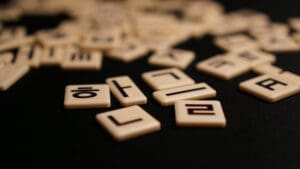The Kurdish language
The Kurdish language is part of the Northwestern Iranian branch of the Indo-Iranian subfamily of the Indo-European family of languages. It’s spoken by the Kurds, an ethnic group primarily residing in a region known as Kurdistan, which spans parts of Turkey, Iran, Iraq, and Syria.
Brief History of Origins:
- Ancient Roots: Kurdish has its roots in Old and Middle Iranian languages.
- Medieval Period: Evolved during the Islamic Golden Age, influenced by Arabic and Persian.
- Modern Times: In modern times, Kurdish has adapted, borrowed, and evolved into different dialects, absorbing vocabulary from Turkish, Persian, and European languages.
Number of Speakers:
Approximately 30 million speakers.
Where it is an Official Language:
- Iraq: It is one of the official languages of Iraq..
- Kurdistan Regional Government: The Kurdish language is also officially recognised in the autonomous Kurdistan Region of Iraq.
Example of Text:
Kurdish (Kurmanjki): “Jiyan bê evîn, wek gul bê bûn e.”
English Translation: “Life without love is like a flower without fragrance.”
Where it is Used and How:
- Geographical Usage: Primarily spoken in Kurdistan, spread across Turkey, Iran, Iraq, and Syria.
- Dialects: Major dialects include Kurmanjki, Sorani, and Pehlewani.
- Education and Media: Used in schools, television, newspapers, and official documents in regions where Kurds reside.
- Everyday Use: Spoken within Kurdish communities and families.
Examples of English Words that are Used in Kurdish:
- Technology Terms: Words like “komputer” (computer), “internet,” and “televizyon” (television) are used.
- Transport Terms: “otobus” (bus), “kamyon” (truck).
Kurdish Words Absorbed into English:
There are no widely recognised Kurdish words that have been absorbed into English, but the English language’s exposure to Kurdish culture and history has led to an awareness of some Kurdish terms and names, particularly those associated with politics and cultural identity.
The Kurdish language is a rich and complex language with ancient roots and modern influences. Though predominantly spoken by the Kurdish population across parts of the Middle East, it continues to grow and evolve, reflecting the resilience and adaptability of the Kurdish people. Efforts are being made in some regions to preserve the language through education and media, helping to maintain this vital aspect of Kurdish cultural identity.
Our specialist translators have helped brands such as Shire, GEMS Group and Nestlé to communicate with Kurds throughout the Middle East and beyond. We offer a number of Kurdish translation services, including copywriting, voiceovers and consultancy.
Our translation services - FAQ
Do you use native translators?
Yes, always. All our translators are native speakers and most are still resident in their native country. We pride ourselves on ensuring that all Brightlines’ translators are native. We do not accept applications from non-native candidates or allow them to register on our online recruitment database. All our translators are rigorously tested.
How long will the translations take?
The turnaround for the translation will depend on the word count. As a rough guide, assume that the translators can comfortably process about 2500 words of non-specialised text per day. Proofreading can effectively be completed on a basis of 4000-6000 words a day. Our minimum turnaround time is usually about three days, although it is possible to shorten this if you are in a rush for the final files and we will always be happy to discuss this with you.
What is the variation in your translators’ experience and qualifications? Are they native speakers? Will the cost increase if we use a more experienced translator?
All our translators have to go through a series of tests to make sure they are as good as they say they are, and only if they pass are they allowed to work for Brightlines. There is quite a range of experience and qualifications, but all translators have a minimum of five years’ experience. All translators translate into their mother-tongue without exception and are generally based in-country so they are up-to-date with the local language. We match translators with projects/clients depending on the subject matter, and most of our translators have industry experience in their speciality – there is no better experience than being immersed professionally in the industry they specialise in. Our costs are based on translator experience, speciality (i.e. medical, creative, scientific) and the language choice.
Which languages can you translate into?
We have an extensive database with hundreds of trusted and tested translators covering all commercial languages. If you cannot see the language or dialect you need please ask.
I don’t know the word count; can you base the quote on the number of pages?
Our pricing structure is based on a rate-per-word, but we can estimate from a page count. If we can’t see the source document then we would usually estimate between 300 – 500 words a page depending on the density of the text and the presence of photos and images.
Does the translation need to be proofread?
Brightlines is an ISO 9001:2015 certified company. This means that quality is safeguarded. We adhere to the “four-eyes principle” and translations are always checked by a second professional proofreader (who is not the translator). If the translation is for internal use and reference purposes only (i.e. not to be published, distributed or used in a court of law), or you simply don’t wish to have proofreading, we can remove the proofreading stage.
Get in touch
If you need Kurdish translations, get in touch with our team, or get a quick quote.






